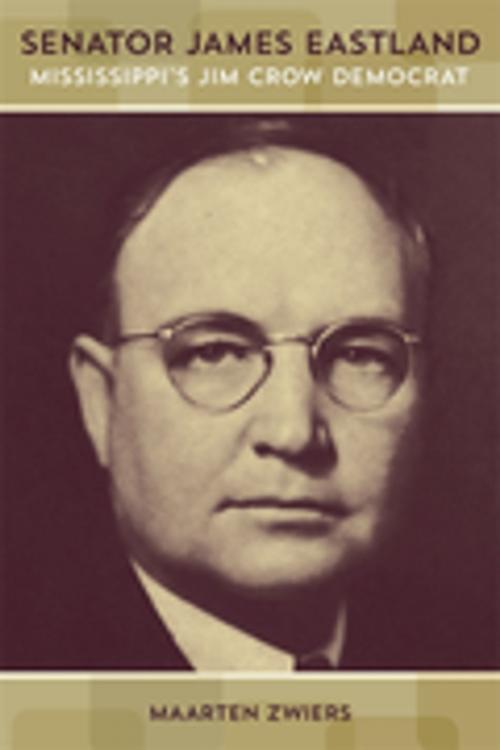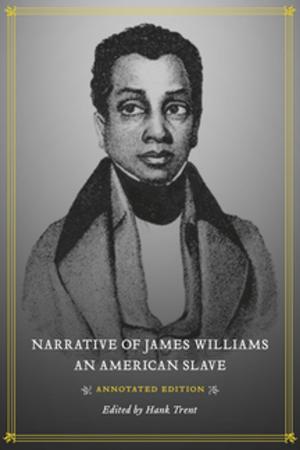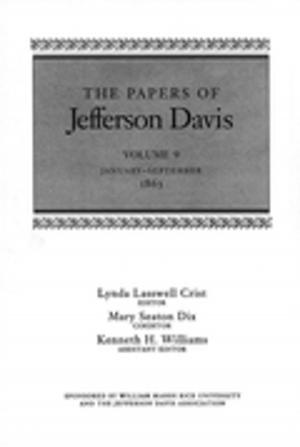Senator James Eastland
Mississippi's Jim Crow Democrat
Biography & Memoir, Literary, Nonfiction, History, Americas, United States, Social & Cultural Studies, Political Science| Author: | Maarten Zwiers | ISBN: | 9780807160039 |
| Publisher: | LSU Press | Publication: | June 15, 2015 |
| Imprint: | LSU Press | Language: | English |
| Author: | Maarten Zwiers |
| ISBN: | 9780807160039 |
| Publisher: | LSU Press |
| Publication: | June 15, 2015 |
| Imprint: | LSU Press |
| Language: | English |
In the years following World War II, the national Democratic Party aligned its agenda more and more with the goals of the civil rights movement. By contrast, a majority of southern Democrats remained as committed as ever to a traditional, segregationist ideology. Through the career of Senator James Eastland, one of the mid-century's most prominent politicians, author Maarten Zwiers explores the uneasy, yet mutually beneficial relationship between conservative southerners and the increasingly liberal party to which they belonged.
Mississippi Democrat James "Big Jim" Eastland began an influential four-decade career in the United States Senate in 1941, ultimately rising to become president pro tempore of the Senate, a position that placed him third in the line of presidential succession. His reputation for toughness developed from his unfailing and ruthless opposition to greater civil rights and his concern over the global spread of communism, as he believed participants in the two movements were working together to undermine the American way of life. Zwiers contends that despite Eastland's extreme positions, he still managed to maintain influence through productive relationships with his Senate colleagues-liberal as well as conservative. Though the progressive wing of the Democratic Party continued to push for stronger civil rights legislation, they valued compromise with southern senators like Eastland in order to ensure support from a region the Democrats could ill afford to lose. While Eastland's campaigning rhetoric was inflammatory, his ability to operate within the national political structure by leveraging moderate concessions contributed to his lengthy and effective career.
Drawing on recently opened archival records, Maarten Zwiers offers a nuanced portrait of a man frequently portrayed as a southern zealot. Senator James Eastland provides a case study of the complicated relationship between party and party members that allowed Democrats to maintain power in the South for much of the twentieth century.
In the years following World War II, the national Democratic Party aligned its agenda more and more with the goals of the civil rights movement. By contrast, a majority of southern Democrats remained as committed as ever to a traditional, segregationist ideology. Through the career of Senator James Eastland, one of the mid-century's most prominent politicians, author Maarten Zwiers explores the uneasy, yet mutually beneficial relationship between conservative southerners and the increasingly liberal party to which they belonged.
Mississippi Democrat James "Big Jim" Eastland began an influential four-decade career in the United States Senate in 1941, ultimately rising to become president pro tempore of the Senate, a position that placed him third in the line of presidential succession. His reputation for toughness developed from his unfailing and ruthless opposition to greater civil rights and his concern over the global spread of communism, as he believed participants in the two movements were working together to undermine the American way of life. Zwiers contends that despite Eastland's extreme positions, he still managed to maintain influence through productive relationships with his Senate colleagues-liberal as well as conservative. Though the progressive wing of the Democratic Party continued to push for stronger civil rights legislation, they valued compromise with southern senators like Eastland in order to ensure support from a region the Democrats could ill afford to lose. While Eastland's campaigning rhetoric was inflammatory, his ability to operate within the national political structure by leveraging moderate concessions contributed to his lengthy and effective career.
Drawing on recently opened archival records, Maarten Zwiers offers a nuanced portrait of a man frequently portrayed as a southern zealot. Senator James Eastland provides a case study of the complicated relationship between party and party members that allowed Democrats to maintain power in the South for much of the twentieth century.















